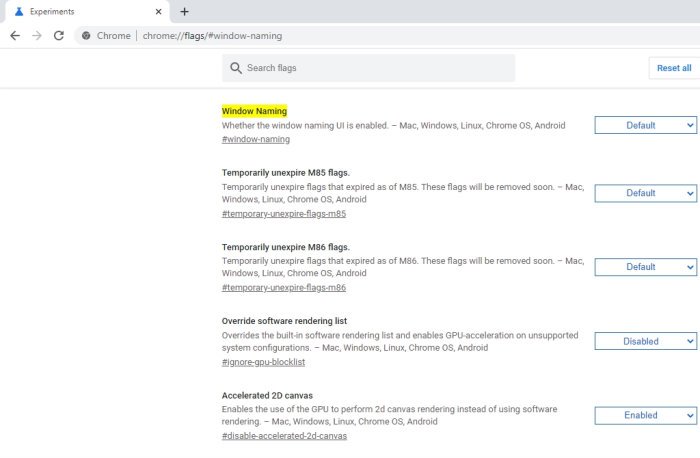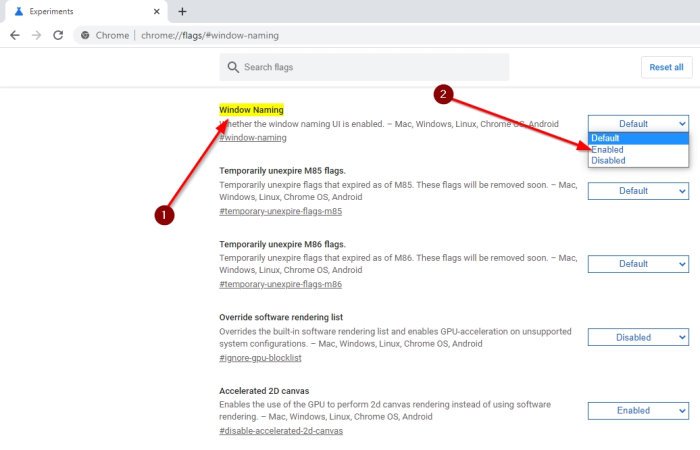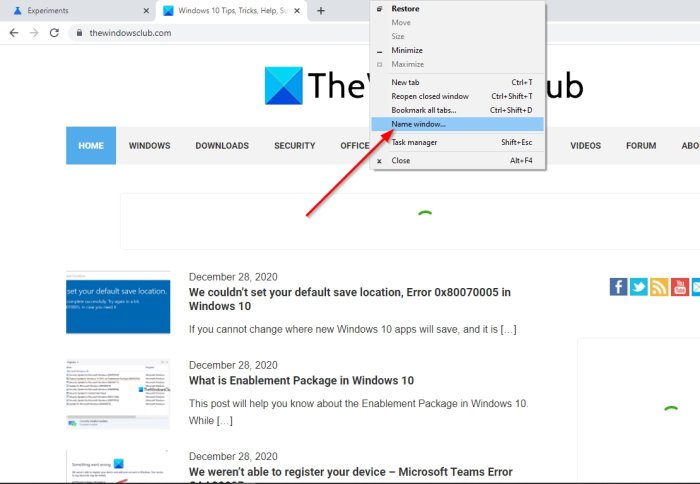We should point out that this is something that is part of Flags, so it is not as easy as opening the Settings menu to enable and disable it. We must first tinker away in Flags before we can make the most of what Window Naming has to offer. Bear in mind that you can also name windows in Microsoft Edge, but you will need to be a part of the Edge Insider Program in order for this to work. Since that is the case, we won’t be discussing the Edge version at this time as the procedure is similar.
Open Google Chrome flags
OK, so the first thing you will want to do here is to open Google Chrome if you haven’t already. After doing so, scroll almost all the way down to the bottom and look out for Window Naming. Alternatively, you could press CTRL+F to bring up the search box, then type Window Naming in the box. Another way is to copy and paste chrome://flags/#window-naming, then make sure to hit the Enter key on the keyboard when you’re done.
Enable or disable Window Naming
Once there, you should see Default to the right of Window Naming. Please click on it, then select Enable from the dropdown menu to turn it on or Disable to turn it off. Finally, click on Relaunch to automatically close and open the browser with Window naming enabled or disabled.
How to name a window in Google Chrome
So, now that the feature is enabled and ready to go, let us discuss how to add a name to a window in Chrome. When it comes down to naming a window, please right-click on the window’s title bar, then select Name Window from the menu that appears. After that, type the name of the window and complete the task by hitting the OK button. Do this for every window that you want to add a name to. You can add names to any number of windows your computer can handle.



